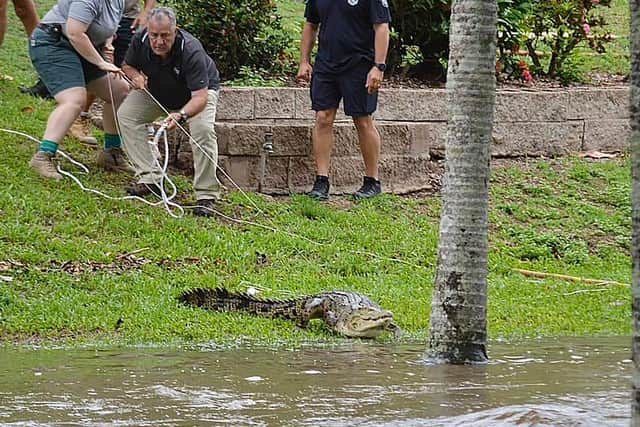Crocodile spotted swimming in floodwater in town centre in storm-hit Australia
A crocodile measuring almost three metres long has been spotted swimming in a storm drain in a town centre in Queensland, Australia, as residents battle with the worst flooding ever to hit the region.
More than 300 people were rescued overnight from floodwaters in north-east Australia, with dozens of residents clinging to roofs.
Advertisement
Hide AdAdvertisement
Hide AdCairns Airport was closed on Monday due to flooding and authorities were concerned the city of 160,000 people would lose drinking water.


In the town of Ingham, a 2.8m-long crocodile was seen swimming in a storm drain before being wrangled by local experts.
While rain was easing in Cairns, severe weather warnings were in place in nearby Port Douglas, Daintree, Cooktown, Wujal Wujal and Hope Vale, with more rain forecast.
Katarina Carroll, commissioner of Queensland state Police, described the flooding as “absolutely devastating”.
She said: “Last night, we had an extraordinarily challenging, challenging evening, rescuing some 300 people.” There were no deaths or serious injuries, she said.
Around 300 residents were to be evacuated by helicopter from the Aboriginal community of Wujal Wujal, where nine adults and a seven-year-old child spent hours overnight on a hospital roof.
A category two tropical cyclone passed close by Wujal Wujal on Wednesday. But while strong winds did little damage to the community, heavy rains have continued to lash the region.
Roads and railway lines were cut, communities were isolated, and 14,000 homes and businesses were without power on Monday.
Australia has suffered from a series of natural disasters in recent years, including intense bushfires and record flooding.
Comments
Want to join the conversation? Please or to comment on this article.
